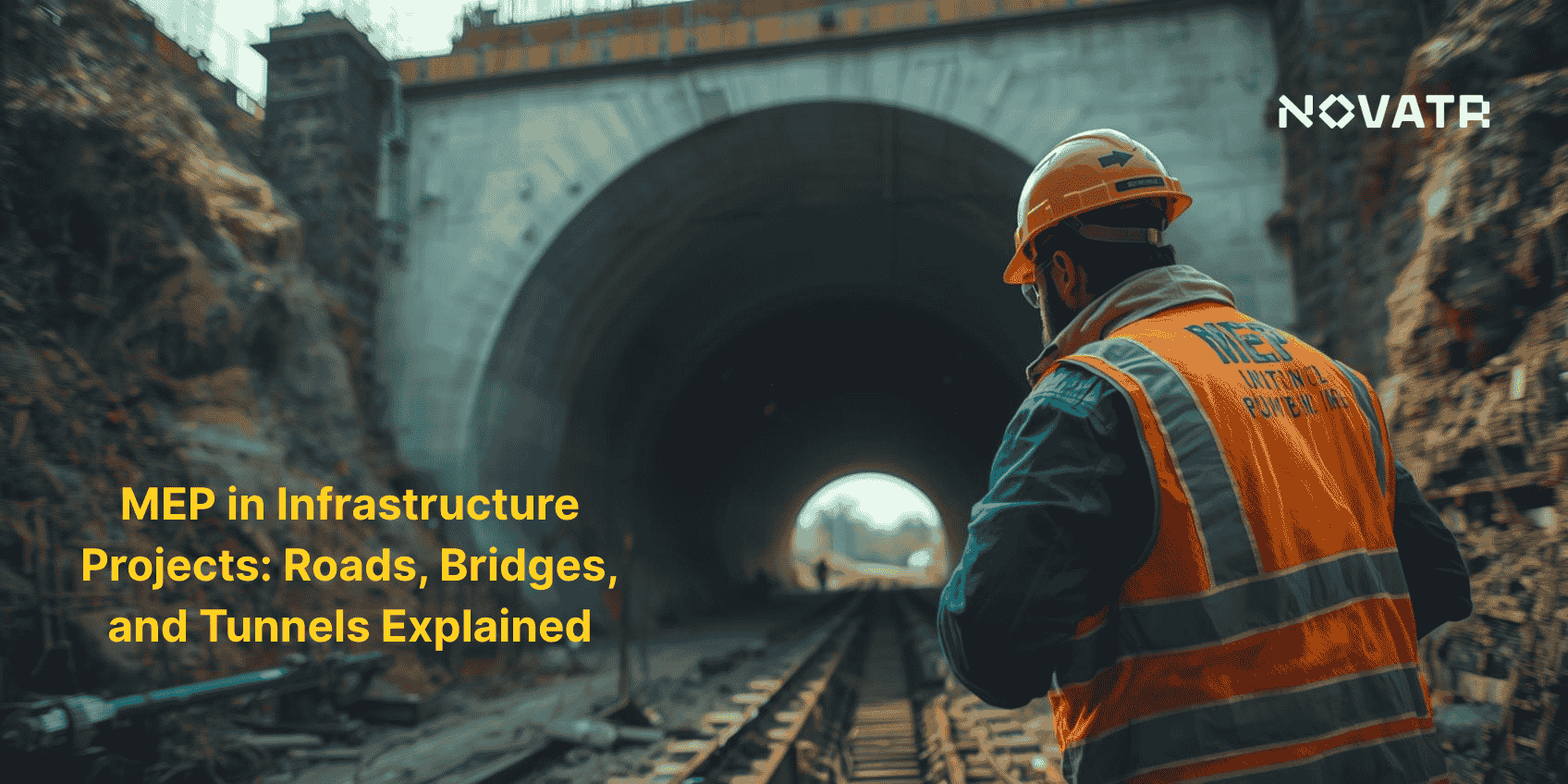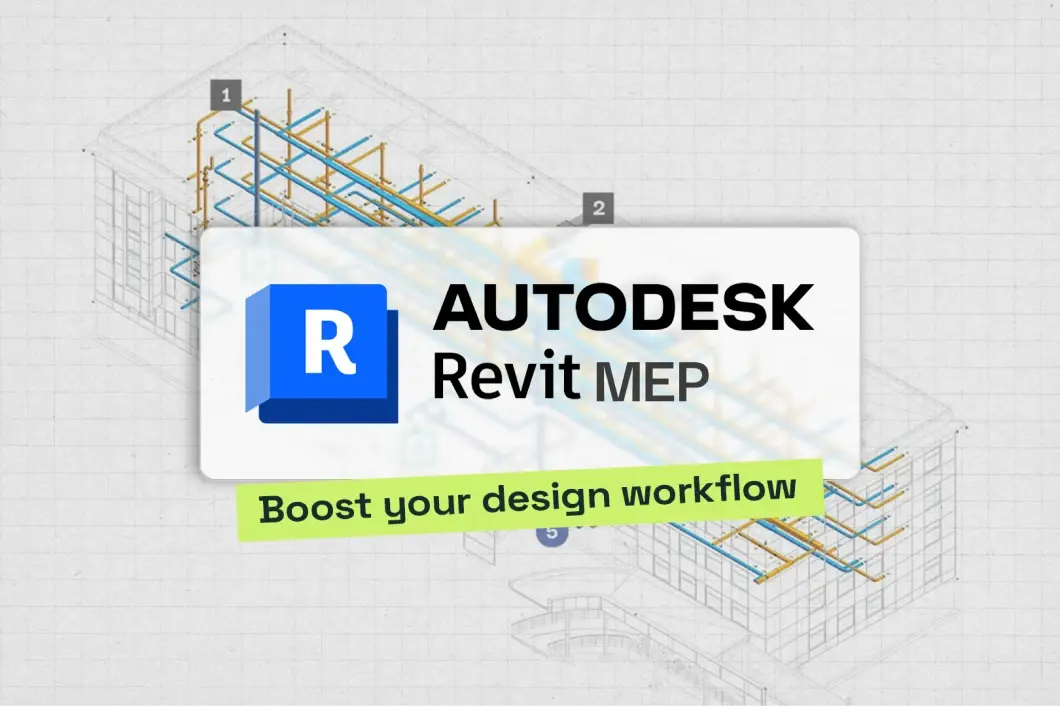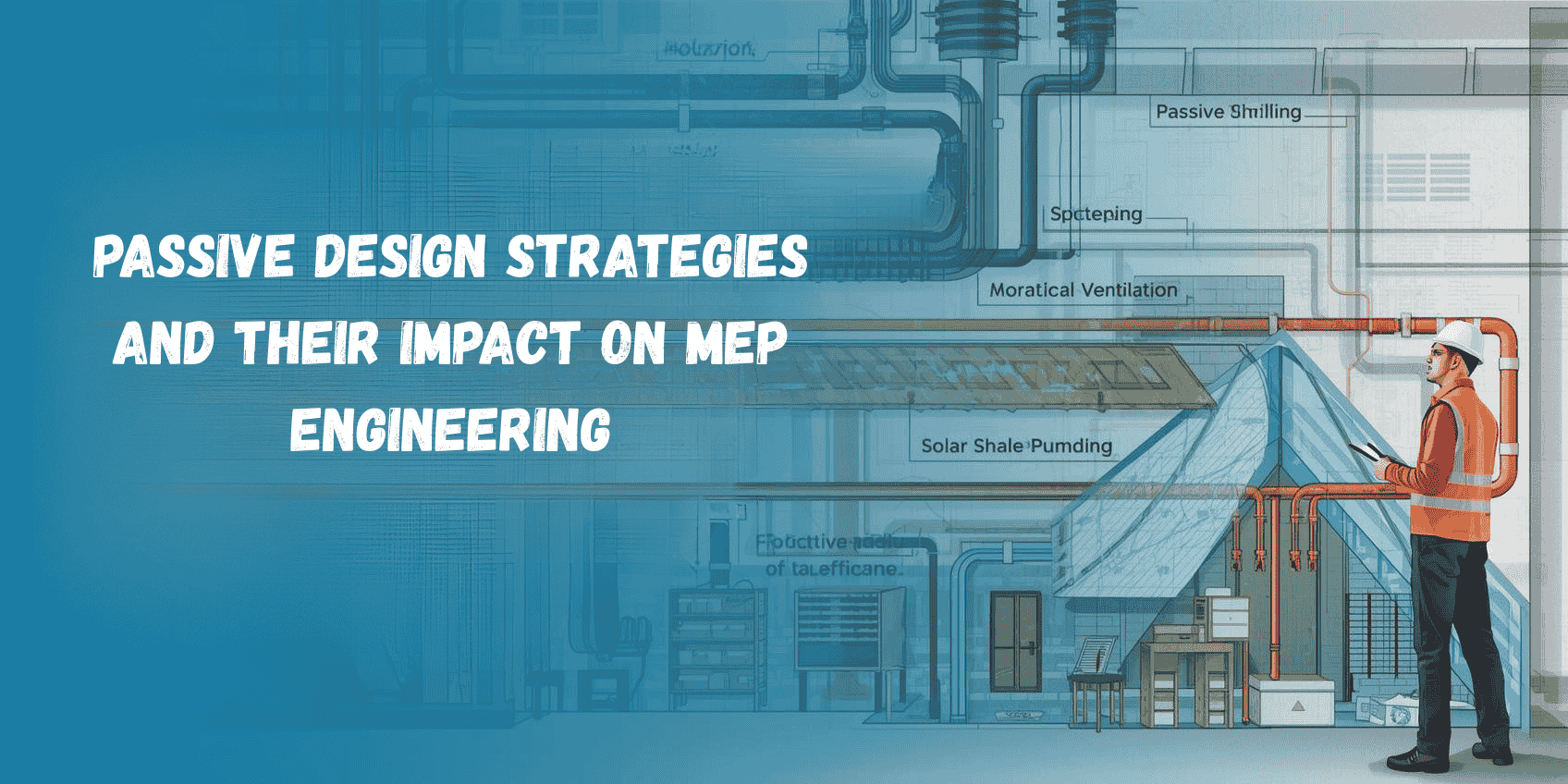
Ever wondered what powers the gleaming skyscrapers, buzzing airports, and massive shopping centres from within? It is not just bricks and mortar; it is a network of intricate systems that make buildings liveable. And who is at the heart of it all? The MEP engineer.
In the dynamic world of MEP infrastructure, professionals are not only expected to design and coordinate but also to innovate, manage, and problem-solve on the go. So, whether you are just stepping into the field or looking to upskill, mastering the right abilities is key to thriving in the ever-evolving MEP industry.
Let us dive into the role of a MEP engineer, why these skills matter, and the ten essential ones you need to add to your toolkit.
What Does a MEP Engineer Do?
Before jumping into the skills, let us quickly understand: what is MEP in construction?
MEP stands for Mechanical, Electrical, and Plumbing—the three core disciplines responsible for making buildings functional. From HVAC systems and lighting to water supply and fire protection, these components are all part of MEP works in construction.
An MEP engineer plans, designs, and manages these systems in various types of MEP projects, whether they are a luxury hotel, a hospital, or an airport terminal. They collaborate with architects, civil engineers, and contractors to ensure the integration of systems in a building is seamless, efficient, and up to code.
Why It’s Important to Master Key Skills in MEP Engineering
The modern construction industry is more digitised, data-driven, and collaborative than ever. With BIM services and digital tools like Revit MEP software, the expectations from a MEP engineer have transformed.
Now, employers hiring for MEP engineer jobs look beyond degrees, they want people with hands-on expertise in the latest tools, team players who can coordinate across disciplines, and problem-solvers who bring value to every project.
Mastering the essential skills not only increases your employability in MEP jobs, but also prepares you to lead larger MEP projects, take on complex design challenges, and grow in leadership roles.
Also Read: Top 10 Revit Plugins Every MEP Professional Needs
Top 10 Essential Skills Every MEP Engineer Should Learn
1. Solid Understanding of MEP Design Principles
Knowing the theory behind MEP design is the foundation of everything. Whether it is calculating cooling loads or designing circuit layouts, understanding how each system interacts is crucial. Strong design knowledge ensures your systems are efficient, sustainable, and safe.
2. Proficiency in Revit MEP and Other MEP Software
Today’s MEP works in construction are heavily reliant on digital tools. You need to be proficient in Revit MEP and other MEP software like AutoCAD MEP, Navisworks, or Dialux. These tools help you create detailed MEP drawings, simulate systems, and detect clashes in the early design stages.
3. BIM Coordination and Collaboration
BIM MEP services have revolutionised the way buildings are designed and managed. Learning how to use BIM software and participate in collaborative digital workflows is no longer optional. It helps you reduce errors, save costs, and improve project delivery timelines.
4. Knowledge of Building Codes and Safety Standards
Every MEP project must comply with local and international building regulations. A skilled MEP engineer is well-versed in codes related to HVAC, electrical safety, plumbing systems, fire protection, and sustainability.
5. Project Management and Coordination Skills
From managing deadlines to coordinating with other professionals, project management is a must. Your ability to oversee timelines, budgets, and resources makes or breaks a project. This is particularly important in large-scale MEP infrastructure development.
6. Problem-Solving and Analytical Thinking
No construction project is without its challenges. Whether it is fixing a design flaw or resolving a site issue, quick thinking and a methodical approach to problem-solving will set you apart in the MEP industry.
Also Read: Major Projects Built on BIM MEP in India
7. Strong Communication and Teamwork
You will be working with architects, structural engineers, contractors, and technicians. The ability to communicate your ideas clearly and collaborate efficiently ensures smooth execution on-site and off.
8. Hands-On Technical Experience
Whether it is through internships, freelance gigs, or assisting a MEP technician, practical exposure is invaluable. It teaches you real-world challenges and how to apply your theoretical knowledge effectively.
9. Adaptability to New Technologies
From smart building systems to AI-powered energy management, the MEP industry is constantly evolving. Staying updated with trends and embracing innovation is key to staying relevant.
10. Continued Learning and Professional Development
Enrolling in a professional MEP course helps you stay ahead. Whether it is learning the latest version of Revit MEP, mastering BIM workflows, or understanding new sustainability practices, continuous learning is a game-changer.
Also Read: Scope of BIM MEP in Future and Its Global Growth Rate
How to Build and Strengthen MEP Skills

Building strong skills as an MEP engineer requires more than just textbook knowledge; it demands hands-on experience, technical adaptability, and a deep understanding of the tools shaping the modern MEP industry. Whether you are new to MEP design or looking to upgrade your expertise, investing time in a structured MEP course, practising with tools like Revit MEP software, and gaining exposure to real MEP projects are essential steps. Learning to use advanced MEP software, staying updated with trends in BIM MEP services, and engaging with professional communities can significantly strengthen your skill set and open doors to rewarding MEP engineer jobs.
What Makes Novatr the Best Platform for MEP Engineers?
Here’s what makes Novatr the go-to platform for building strong, future-ready skills in MEP design and BIM MEP services:
1. Industry-Relevant Curriculum
Learn the latest in MEP infrastructure, sustainable design, and coordination workflows aligned with real-world MEP projects.
2. Master Cutting-Edge BIM Software
Work with advanced BIM software to develop collaborative, data-driven skills needed in today’s digital MEP industry.
3. Real Projects, Real Learning
Build a solid portfolio with simulated and live MEP works in construction that mirror industry challenges.
4. Mentorship from Global Experts
Learn directly from international MEP engineers, architects, and BIM specialists guiding top global projects.
5. Career Launch Support
Access career coaching, resume help, and placement guidance to land high-quality MEP engineer jobs.
6. Learn at Your Own Pace
Flexible online modules let you balance upskilling with your current work or studies.
7. Certification that Employers Trust
Earn a recognised credential that proves your ability to deliver modern MEP services using the latest tech.
8. Community of Innovators
Join a vibrant learner network of future-forward engineers, designers, and MEP technicians.
Also Read: Key Benefits of Revit MEP for MEP Engineers
Conclusion
The world of MEP design is intricate, fast-paced, and incredibly rewarding. As the demand for smarter, more efficient buildings rises, so does the need for skilled MEP engineers who can precisely design and deliver integrated systems.
By mastering these ten essential skills, which range from technical know-how to digital proficiency and collaboration, you are not only staying relevant but also future-proofing your career.
So, whether you are already working in MEP jobs or aspiring to land one, keep learning, keep evolving, and get ready to lead the charge in the next generation of MEP work in construction. And remember, platforms like Novatr can give you that much-needed boost.
Among the best options, the BIM Professional Program for MEP Engineers by Novatr stands out the most. For the latest updates, tools, and insights into the MEP and BIM industry, explore Novatr's Resource Page.
The future of the MEP industry is bright; make sure you are prepared to light the way.
Was this content helpful to you



.jpeg)



